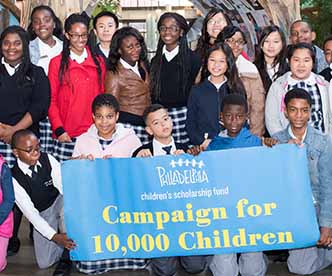Related Topics
Academia (2)
continued.
Indigents
With a long history of welcoming and assisting the poor, Philadelphia has always risked swamping the lifeboat by attracting more of them than it can handle.
Revisionist Themes
In taking a comprehensive view of a city, an author sometimes makes observations which differ from the common view. Usually with special pride, sometimes a little sullen.
Customs, Culture and Traditions (2)
.
Education in Philadelphia
Taxes are too high, but the tax base is too small, so public education is underfunded. Drug use and lack of classroom discipline are also problems. Business and employed persons have fled the city, must be induced to return. Deteriorating education, rising taxes and crime are the immediate problems, but the underlying issue is lack of vigor and engagement by the urban population itself.
Right Angle Club: 2013
Reflections about the 91st year of the Club's existence. Delivered for the annual President's dinner at The Philadelphia Club, January 17, 2014.
George Ross Fisher, scribe.
Ruminations About the Children's Education Fund (3)
The Right Angle Club runs a weekly lottery, giving the profits to the Children's Educational Fund. The CEF awards scholarships by lottery to poor kids in the City schools. That's quite counter-intuitive because ordinarily most scholarships are given to the best students among the financially needy. Or to the neediest among the top applicants. Either way, the best students are selected; this one does it by lottery among poor kids. The director of the project visits the Right Angle Club every year or so, to tell us how things are working out. This is what we learned, this year.
The usual system of giving scholarships to the best students has been criticized as social Darwinism, skimming off the cream of the crop and forcing the teachers of the rest to confront a selected group of problem children. According to this theory, good schools get better results because they start with brighter kids. Carried to the extreme, this view of things leads to maintaining that the kids who can get into Harvard, are exactly the ones who don't need Harvard in the first place. Indeed, several recent teen-age billionaires in the computer software industry, who voluntarily dropped out of Harvard seem to illustrate this contention. Since Benjamin Franklin never went past the second grade in school perhaps he, too, somehow illustrates the uselessness of education for gifted children. Bright kids don't need good schools or some such conclusion. Since dumb ones can't make any use of good schools, perhaps we just need cheaper ones. Or some such convoluted reasoning, leading to preposterous conclusions. Giving scholarships by lottery, therefore, ought to contribute something to educational discussions and this, our favorite lottery, has been around long enough for tentative conclusions.

|
Just what improving schools means in practical terms, does not yet emerge from the experience. Some could say we ought to fire the worst teachers, others could say we ought to raise salary levels to attract better ones. Most people would agree there is some level of mixture between good students and bad ones. At that point, the culture mix becomes harmful rather than overall helpful; whether just one obstreperous bully is enough to disrupt a whole class or something like 25% of well-disciplined ones would be enough to restore order in the classroom, has not been quantitatively tested. What seems indisputable is that the kids and their parents do accurately recognize something desirable to be present in certain schools but not others; their choice is wiser than the non-choice imposed by assigning students to neighborhood schools. Maybe it's better teachers, but that has not been proved.

|
It seems a pity not to learn everything we can from a large, random experiment such as this. No doubt every charity has a struggle just with its main mission, without adding new tasks not originally contemplated. However, it would seem inevitable for the data to show differences in success among types of schools, and among types of students. Combining these two varieties in large enough quantity, ought to show that certain types of schools bring out superior results in certain types of students. Providing the families of students with specific information then ought to result in still greater improvement in the selection of schools by the students. No doubt the student gossip channels already take some informal advantage of such observations. Providing school administrations with such information also ought to provoke conscious improvements in the schools, leading to a virtuous circle. Done clumsily, revised standards for teachers could lead to strikes by the teacher unions. Significant progress cannot be made without the cooperation of the schools, and encouragement of public opinion. After all, one thing we really learned is that offering a wider choice of schools to student applicants leads to better outcomes. What we have yet to learn, is how far you can go with this idea. But for heaven's sake, let's hurry and find out.
Originally published: Tuesday, January 29, 2013; most-recently modified: Wednesday, June 05, 2019